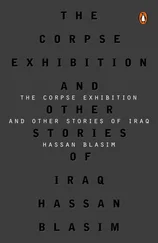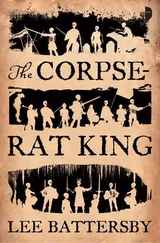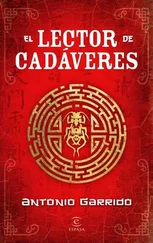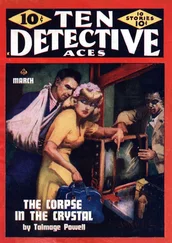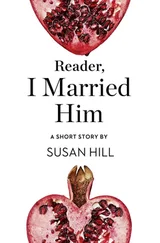The next problem was larger. One of the greatest pitfalls for writers of historical fiction is to establish how much truth—and how much fiction—is contained in their sources, which should (but may not always) show scrupulous respect for the facts.
I have attended many discussions on the concept of the historical novel, debates which, with varying levels of vehemence, tend to turn on the degree of quality and quantity of facts a novel should contain if it is to be considered a novel of historical significance. Panelists tend to employ the semiologist Umberto Eco’s typology of three modalities: First, there is the romantic novel with a fantastical setting, in which characters and the historical background are purely fictitious, but are overlaid with the appearance of veracity (for example, Bernard Cornwell’s Warlord Chronicles novels). Second, there are what Eco terms “cloak and dagger” works, novels whose historically real characters are placed in fictional situations that never actually occurred (for example, works by Walter Scott, Alexandre Dumas, and Leo Tolstoy). Last, there are the historical novels that Eco considers to strictly adhere to the term, with fictional characters in historically veracious situations (including his own iconic The Name of the Rose ).
Many would say that this typology leaves out biographical novels, false memoirs, and essays that are more or less rigorous.
In any case, my belief is that a historical novel should be a novel first and foremost. We should work from the principle that the novel is fiction, as that is the only way its magic and power to captivate can come through. Once this difficult process is complete, the key should be in the rigor and honesty with which the author deals with historical events; it is just as historical to write a novel about an anonymous slave who lost his life building a church as it is to write about Julius Caesar in Gaul. Rigor is everything. In Caesar’s case, the character is historical, but that doesn’t guarantee that our story will deal with his behavior, feelings, or thoughts. In the case of the former, the fictional character who is the slave didn’t exist, but someone like him did. And if our fictional character acts as that slave might have acted, then the story will be vivid.
Obviously, the author’s duty is to write a novel in which Caesar thinks, feels, and acts more than historians tell us to be the case; if we did otherwise, we’d be writing an essay, a biography, or a documentary. But the author also has a duty to make sure that the fiction is plausible. We would also be wrong to scorn the historical novel that employs fictional characters acting in a real world, because that world and whatever happens around the character also make up part of our larger history.
It is obligatory, in this sense—though larger events may be the only ones recorded—to point out that small, daily happenings are those that make up our lives, our highs and our lows, the things that make us believe and dream, the things that make us fall in love, reach decisions, and even, sometimes, fight or die for what we believe. The great historian Jacques Le Goff was the first to claim the history of the everyday: of medieval fairs; of the less well-off living in villages; of sickness, punishment, and pain; of the reality of the forgotten lives, in contradistinction to the brilliance and resonance of battles whose stories are related by the victors.
To anyone interested in looking into the subject further, I would highly recommend the essay “Cinco miradas sobre la novella histórica” (“Five Views of the Historical Novel”) by Carlos García Gual, Antonio Penadés, Javier Negrete, Gisbert Haefs, and Pedro Godoy, and published by Ediciones Evohé. These prestigious authors not only contribute clear perspectives on the question, but also manage to do so in an entertaining and enlightening manner.
In the case of The Corpse Reader , the protagonist is a real person, albeit one little known for his work, despite his copious writings. With that in mind, I have endeavored to reflect exactly the protagonist’s methods of working, his innovative forensic techniques, his difficult beginnings, his daring, his intellect, his love of academia, and his thirst for truth and justice. All the processes, procedures, laws, protocols, analyses, methods, instruments, and materials I have described are real. Other real people, including Emperor Ningzong and his retinue, the Councilor for Punishments and old Professor Ming, add to the cast of characters. I was also aided by historical facts such as the widely documented existence of the academy, the political instability on China’s borders, and, above all, the appearance, for the first time in history, of the hand cannon, a wholly new, and wholly deadly, innovation.
But I also added fictional elements that enabled me to re-create, with verisimilitude, the society, intrigue, and evolution of the time. In this sense, I wove together a complicated plot in which I speculated on how the top-secret formula for explosive gunpowder might pass into the hands of China’s enemies, the Mongols, and finally make its way to Europe.
The scientific name for Cí Song’s unusual condition is congenital insensitivity to pain with anhidrosis (CIPA) and is consistent with an unusual mutation of the gene that controls the neurotrophic tyrosine kinase receptor, which inhibits the formation of nerve cells responsible for transmitting pain, heat, and cold signals to the brain. I admit that there is no evidence that Cí Song suffered from it; this is dramatic license. But this infirmity, a marvelous ability allowing him to overcome certain difficulties, also has its downside—changing, toughening, and damaging the protagonist, making him feel like an accursed monster.
As a final remark, I would like to offer a personal reflection on literary genres. Everyone knows about the innate human tendency to classify, and it is only logical in an information-rich—sometimes overly rich—society. Something similar can happen with literary genres: so much is published that publishers have to decide which genre books fall under, booksellers need to know which shelves to place them on, and readers want orientation to help them choose a book to fit their tastes.
So far, so good. “Genrefication” is a way of organizing, and organization is necessary. But maybe the human tendency to give fixed labels to genres is less so. We label genres “great” or “minor,” but these labels never depend on an objective classification of each individual book.
I say this because I have often heard the historical novel referred to as a “minor” genre. Every time I hear this, I wonder whether the person making this point is talking about a specific novel or, really, is just following common opinion. To illustrate my point, let’s imagine for a moment a writer of unusual skill writing a tragic love story about two youths whose families, the Capulets and the Montagues, hate one another. Just because it is set in sixteenth-century Venice, should Romeo and Juliet be called nothing more than historical fiction, rather than the greatest love story ever told?
This leads us to the ineffable Jose Manual Lara’s definition of genres: “In reality, there are only two types of novels, those that are good and those that are bad.”

BIOGRAPHICAL SUMMARY OF Cí SONG
Cí Song was born in 1186 in Jianyang, a subprefecture of Fujian. His father, Kung Song, was not an outstanding student but managed, due to the facilities provided by Emperor Ningzong, to pass the governmental exams. Obsessed with his son’s future, Kung had Cí take lessons with a follower of Hsi Chu before entering the t’ai-hsue , the National University at Lin’an (current-day Hangzhou). In 1217, after taking courses in medicine, law, and criminology, Cí Song obtained a Chin-shih doctorate, which qualified him to become a sheriff in Yin, in the subprefecture of Chekiang. But his father’s sudden death prevented him from taking the post, as he had to withdraw from public life to observe the customary mourning period. Almost a decade later, Cí Song became a registrar in Hsin-feng, in the subprefecture of Kiangsi. His successes in forensics made his quartermaster envious, and the latter had him demoted several times until Cí Song gave up the life of an official. After the death of the quartermaster, though, Cí Song took up his former post and went on to rise through the administrative ranks, including subprefect, prefect, and judicial intendant. He dedicated himself to forensic study and analysis, discarding several ancient, esoteric, and magic-based practices. Some of his innovations are still in use today. He died in 1249, two years after completing the first and most important scientific treatise on forensics in history, the Hsi yuan lu hsiang I .
Читать дальше



